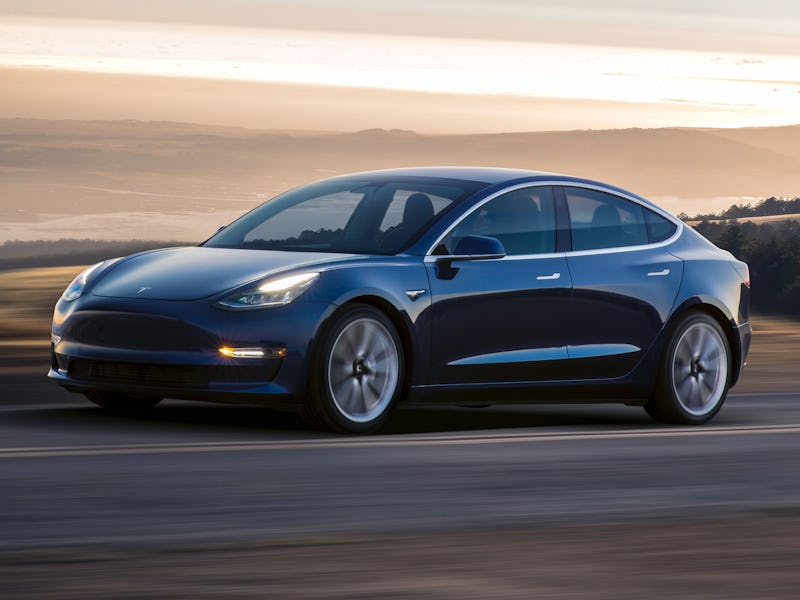Tesla Model 3 Success Has Delivered Tesla to Profitability: Elon Musk
Tesla stock is soaring after hours.

At the very least, Tesla CEO Elon Musk has managed to make short sellers sweat even more than they already were: Musk now says the company has finished its last unprofitable quarter (barring force majeure, an economic recession, or aggressive loan repayments, of course). By the middle of the second quarter earnings call, Tesla stock had already soared close to 10 percent in after hours trading.
The main reason for the success, company executives explained, was the discovery of unexpected manufacturing efficiencies. Musk said the company produced 5,000 Model 3s per week throughout July, laying aside questions about whether the pace of Tesla’s production was sustainable.
“I want to emphasize that our goal is to be profitable and cash flow positive every quarter going forward.” Musk said, before citing force majeure or economic recessions as caveats. “There may be occasional quarters where we pay back a big loan or something.”
Tesla stock soared during CEO Elon Musk's conference call.
Mission Accomplished?
There’s a lot of reasons why Tesla is making more money per car than it used to. The time it takes to build each car is trending down, higher volume means that Tesla can better negotiate with suppliers for lower prices on raw materials. But of course, these are advantages that all incumbent manufacturers enjoy.
So why was Musk able to scale Tesla up more quickly than their doubters expected? He attributed it to the company’s competitive advantage in terms of software. Many large manufacturers actually outsource their software production, Tesla not only develops it own, it’s capable of shipping software updates to its cars remotely (Tesla also says its new A.I. neural net processing chip is about 10x the speed of Nvidia’s).
“Manufacturing at volume is a lot of software,” Musk explained. “We’re quite good at software relative to other car companies.”
Musk also said that the learnings from the first Gigafactory are informing more efficiencies in the other two planned Gigafactories in China and Europe. Tesla expects the Gigafactory in Shanghai, for example, to cost around $2 billion to produce 250,000 cars per year, along with batteries.
Lots of stock market observers are also attributing some of the positive reactions to the earnings call to Musk’s newfound sense of diplomacy. In response to the first two analyst questions, for example, Musk began by personally apologizing for his conduct on the previous earnings call, when he cut valid questions short for being boring.
“There’s no excuse for bad manners,” Musk said, citing the lack of sleep and long hours in the body shop.
The solid results perhaps explain why Musk was so confident about the call, tweeting that the company was looking to hire video game developers to build games for the touch screen less than an hour before.